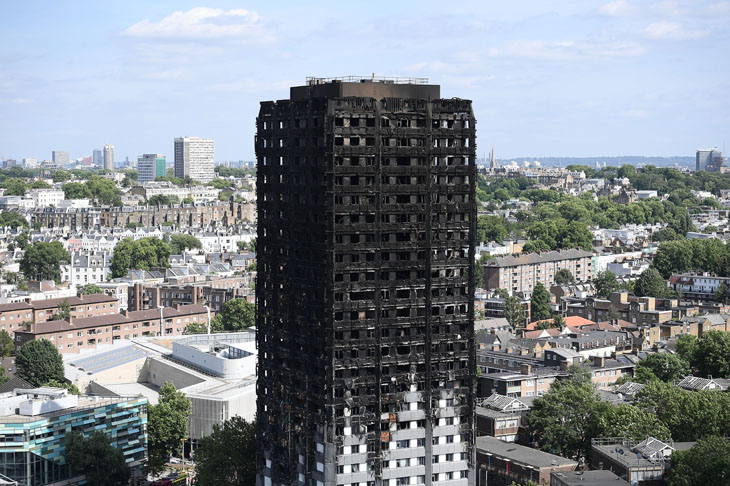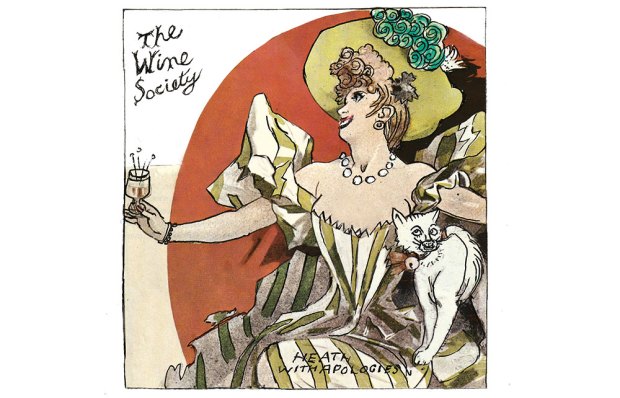The last housing scandal in Notting Hill brought down a Conservative government and transformed the social policy of Britain. Peter Rachman was a slum landlord with a pink Rolls-Royce. His appalling treatment of poor immigrants, exposed during the Profumo affair, magnified the myth of exploitative, capitalist, decadent Tories. The 1964 election swept Harold Wilson to power with a promise of rent controls, and the era of council estates, comprehensive education and welfare entitlement was upon us.
Despite the efforts of Wilson and his successors, Notting Hill is the most unequal corner of the most unequal city in the country. Half of the children in the Royal Borough of Kensington and Chelsea — most of those living south of the Westway — go to private schools, while a quarter (i.e. most of those in the north) live beneath the poverty line. It is also the most diverse borough in Britain, with 52 per cent of all residents born abroad.
For years we have celebrated Notting Hill for its rich multiculti ambience, an area where trustafarians and Rastafarians jog along harmoniously, sometimes even talking for a few minutes after a drug deal. In reality, like the rest of London, this is a place of parallel communities. We are not at peace, but in a truce which may not last.
In the estates around Grenfell Tower some of Britain’s nastiest Islamists, including the notorious Jihadi John, grew up. It is also the breeding ground for another revolutionary creed. On the day after the fire I saw a young girl hoisting a Socialist Workers Party banner along the pavement behind her mother, proclaiming: ‘Tories have blood on their hands.’ Sadiq Khan, sniffing the wind, concurred, stating the fire was the fault of ‘the [Conservative] council’. It may well be, of course, but he did not wait to find out. Nor have Jeremy Corbyn and John McDonnell been slow to call for the houses of the rich to be sequestered by the state.
I live in a council estate not far from Grenfell Tower, and on these hot nights you can hear the hubbub on the walkways. It is taken for granted among my neighbours that ‘they’ want ‘us’ out; that the fire was deliberate at worst and passively allowed at best. Theories circulate not just about the infamous cladding but about how the gas pipes were laid, and the behaviour of the police and fire services.
Yet there is another story about the Grenfell Tower tragedy. Also on the streets last week, jostling with the Socialist Workers Party, was another familiar London type: the upper-middle-class do-gooder. You could hardly move for vicars, as you would hope and expect. But it was also notable how many of the Notting Hill elite became ordinary people last week, walking down the road and pitching in. One of the first on the scene was Samantha Cameron. Suddenly her husband’s best idea, the Big Society, was happening on her doorstep.
I know of a pair of private wealth managers who haven’t been to work since last Wednesday. Besides comforting the victims, they have run to the bank to get cash for the homeless. They bought laptops and clothes and toiletries, and hired vans. They contacted the boss of a mobile phone giant, also a local, and got him to send 300 phones then and there. While others were screaming about the evils of the government, they got on and made things better.
The reason we need the Big Society is that the Big State is no good at this stuff. This is not to say that government can’t do disaster relief — it can and should. Certainly the council needs to tear down the towers and build streets and squares, with first-class homes for everyone. But the equal imperative is to rebuild a community here — and that’s where the middle classes come in.
In the week after the disaster we saw the power of sharp-elbowed types who don’t take nonsense from council officers and know how to get what they need from dim-witted service providers. They are not all upper middle class: a place like North Kensington has its share of canny people of all backgrounds. But there is a reason free schools are mostly in affluent areas. Privileged people have that much-mocked ‘entitlement’ to which we really are all entitled in a free country: the right to try and get things done oneself.
Society needs social infrastructure. Rather than setting up a grand new bureaucracy to deal with the challenges of the area, we need nimble, independent organisations to manage money from multiple sources and direct it to multiple charities, community associations and families themselves — and to be accountable for the results.
One model is the West London Zone for children and young people, which I founded with the philanthropist Paul Marshall. WLZ is run by Louisa Mitchell, a Notting Hill mother, Cambridge graduate and ex-banker who has chosen to work in the basement of a youth club on behalf of her neighbourhood. WLZ identifies children at risk of underperformance later in their childhood, works with their school, their family and a network of local charities to provide holistic, bespoke support, and rigorously monitors progress over the long-term. We pool funding from government, the council, schools and private philanthropy. We hope we can help the survivors of Grenfell Tower in this way.
There have been two great social reform movements in our modern history. One was when a group of aristocratic evangelicals, meeting at William Wilberforce’s house in Clapham, decided to campaign against the moral and physical squalor of Georgian England — and so gave rise to the Victorian virtues of self-help and philanthropy. The other came 100 years later, when a group of bourgeois professionals based near John Maynard Keynes’s house in Bloomsbury Square rejected the model of piecemeal friendly societies and random charity and conceived the welfare state.
Change happens when a subset of the elite wins an argument with the rest of their class. A century on from the Bloomsbury group, it is time for members of today’s elite, the financial and media aristocracy of Notting Hill, to support the creation of a new social model.
Danny Kruger and Dawn Foster discuss the fallout from the Grenfall disaster on the Spectator Podcast.
Got something to add? Join the discussion and comment below.
Get 10 issues for just $10
Subscribe to The Spectator Australia today for the next 10 magazine issues, plus full online access, for just $10.
You might disagree with half of it, but you’ll enjoy reading all of it. Try your first month for free, then just $2 a week for the remainder of your first year.














Comments
Don't miss out
Join the conversation with other Spectator Australia readers. Subscribe to leave a comment.
SUBSCRIBEAlready a subscriber? Log in